Up in flames: These household items are setting Boise-area garbage trucks on fire
At Thursday’s “repair cafe,” Marilyn Cosho earned the evening’s first “ding” of success — and a resulting round of applause — when repair volunteer Andy Huang uncovered the real problem with her slide viewer.
Hopes weren’t high when he started tinkering with the item: She got it in Vienna, Austria, in the early ’70s (the box said it was made in West Germany), and it hadn’t worked in years.
But Huang, who studied rocket science before going to work for Hewlett-Packard and Boise State University, uncovered the real problem after just a few minutes. He was simultaneously looking at the innards of Ramona Higer’s bright yellow Sony boombox when he put two and two together, temporarily putting the boombox’s batteries into Cosho’s slide viewer, which came back to life.
“It’s just the batteries – no, it’s not rocket science,” Huang joked.
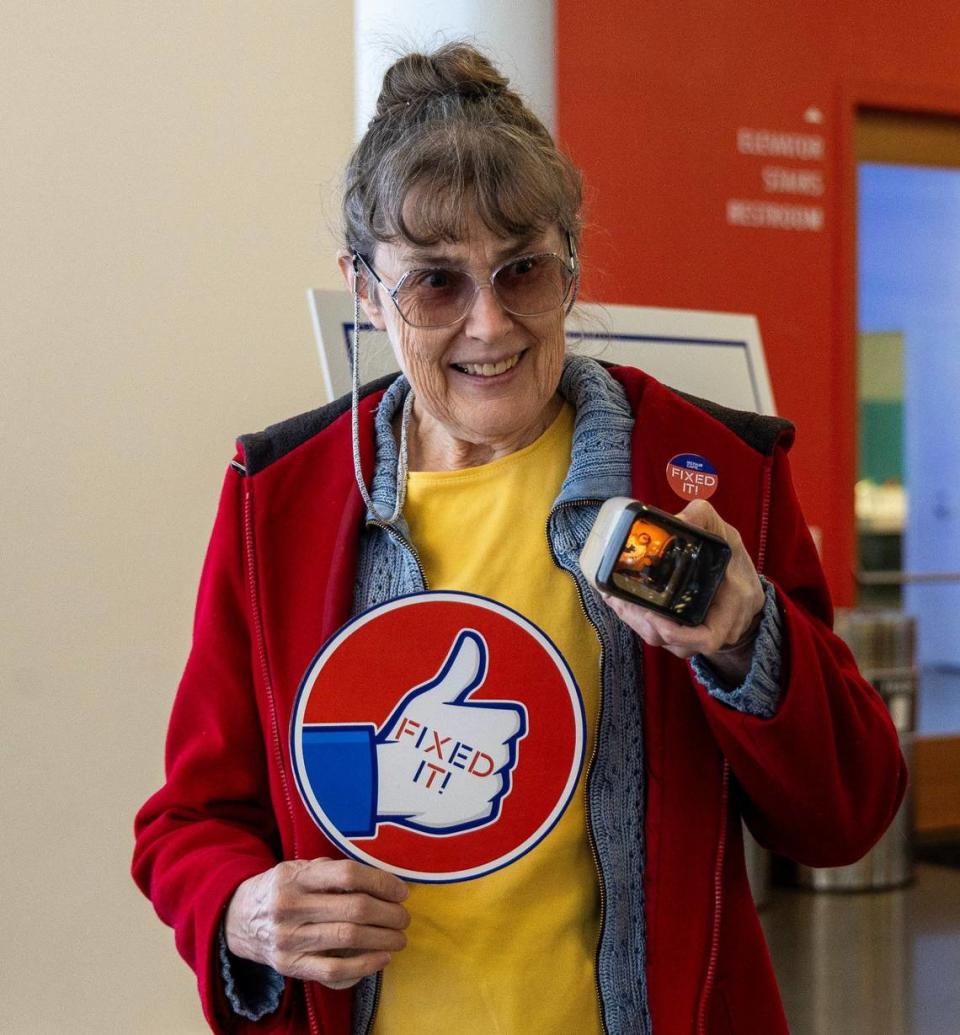
Cosho’s item was the first of many on Thursday saved from the landfill. The repair cafe, hosted by the city of Boise and Jack’s Urban Meeting Place, or JUMP, was part of an international movement to promote repairing items instead of trashing them.
This ethos felt especially important for the myriad electronic products people carried in. In recent years, e-waste — that’s anything with a plug or battery — has become a serious problem in the world of trash and recycling, said Rachele Klein, the business development manager for Republic Services, which collects trash and recyclables in the Treasure Valley.
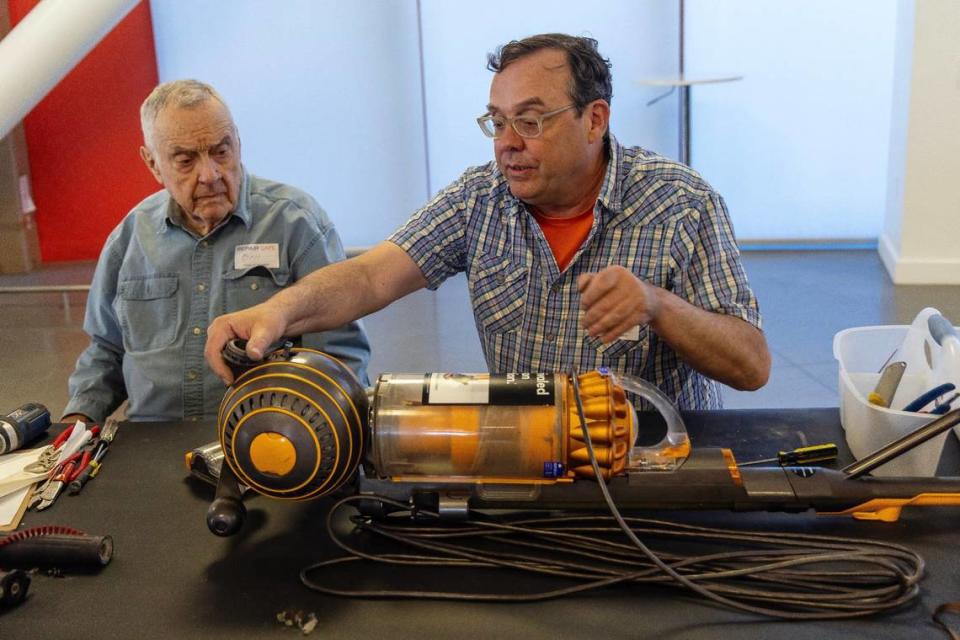
Electronic items, especially those with rechargeable lithium-ion batteries, can cause fires or explosions when crushed, punctured or overheated. Even a small battery can set off a spark, and once it’s in a truck, everything around it is “all fuel,” Klein told the Idaho Statesman during a tour of Republic Services’ Boise hauling station, where the company had two damaged trucks awaiting repair and replacement.
In Idaho, Republic Services has seen fires at its facilities and inside its trucks increase almost 100% every year for the last three years, Klein said. Last year, the company had five truck fires in the Treasure Valley, four caused by lithium batteries.
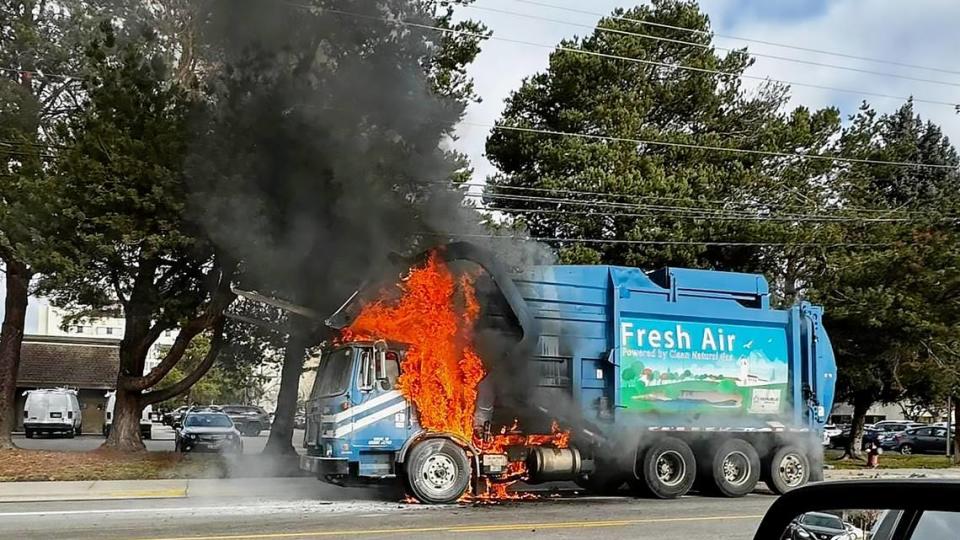
The company is not alone: In 2021, the Environmental Protection Agency reported nearly 250 fires caused by lithium-ion batteries in landfills nationwide since 2013. Some of those fires destroyed entire transfer stations, trucks, landfills and other facilities and caused millions of dollars in damages, according to the report.
It’s become an international problem. By 2022, the world generated almost 140 billion pounds of e-waste, only about 20% of which was properly collected and recycled, according to a 2024 United Nations report.
The report estimated the impact of e-waste management at $37 billion, “mainly in the form of externalized health and environmental costs.”

Part of the problem, Klein said, is that consumers don’t realize how common these batteries are. They’re in e-cigarettes, vapes, drones, children’s toys, electric dog collars and hearing aids. Many of the items with these batteries are single-use.
“You start your morning and you have your battery-powered Waterpik, your battery-powered toothbrush, your battery-powered electric razor. You use your cell phone, your computer, and your tablet,” she said. “Everything we do now is pretty much powered by batteries … and they’re great, and we’re relying more and more on them. But there’s this huge disconnect currently between buying all these products and what you do when they’re at the end of their useful life.”
In recent years, handling truck fires has become a “pretty big component” of Republic Services’ driver training, Klein said.
“When you do see smoke, where do you eject your load? You’re in the North End, and it’s high-density, and your truck is in flames, what do you do?” she said. Drivers “know that church (parking lots) during the week are generally a good place … or at Wahooz during the winter.”
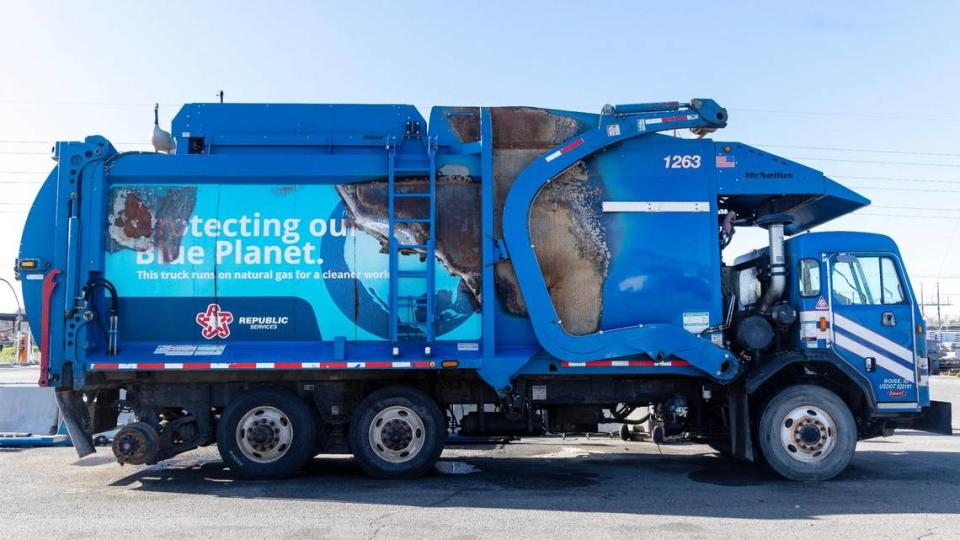
Most producers of battery-powered products provide little in the way of guidance on disposal, Klein said. So it’s up to the consumer.
In February, Republic Services posted a video with instructions about how to safely use these batteries — avoid charging them for too long or exposing them to high heat — and how to dispose of them at approved hazardous waste collection sites, including at the Ada County Landfill.
But Garden City’s Reuseum may take the cake for keeping e-waste away from landfills by joyfully squeezing the most life out of old electronics.
The nonprofit, founded in 2013, collects, repairs and resells donated electronics. It breaks down and recycles the components of items beyond repair. It uses the proceeds to fund science and technology camps and workshops that allow kids — and sometimes their parents — to tinker with the old electronics or help deconstruct items headed for eventual recycling.
“You’ll see computers, old cameras, quartz bromine camera lights — all manner of things walk in the door,” Steve Rodoletz, the Reuseum’s executive director, told the Statesman during a tour. “Some are dysfunctional. Some are perfectly functional – they’re just unwanted.”
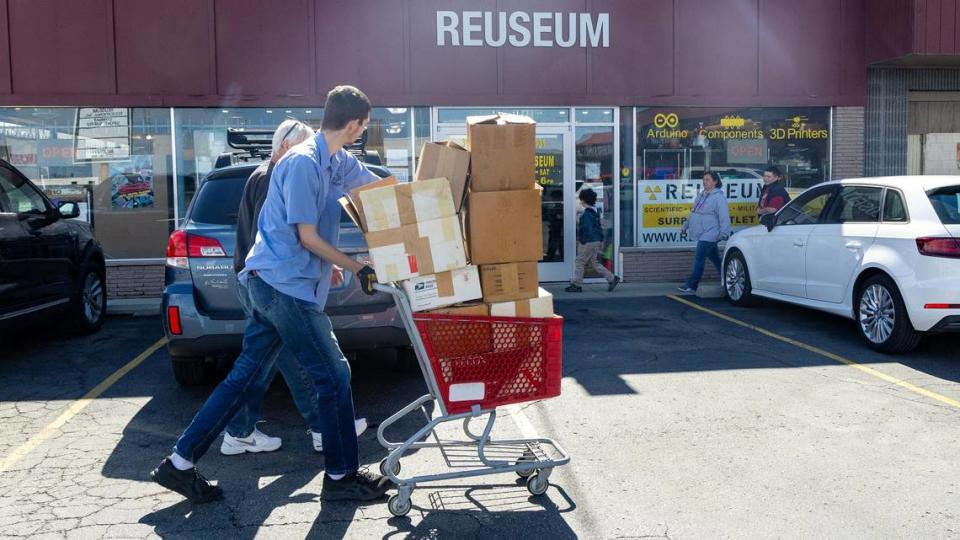
All told, the Reuseum has kept nearly 400,000 pounds of e-waste out of the landfill, said Glen Martin, the Reuseum’s program director.
And there’s room in that process for everyone.
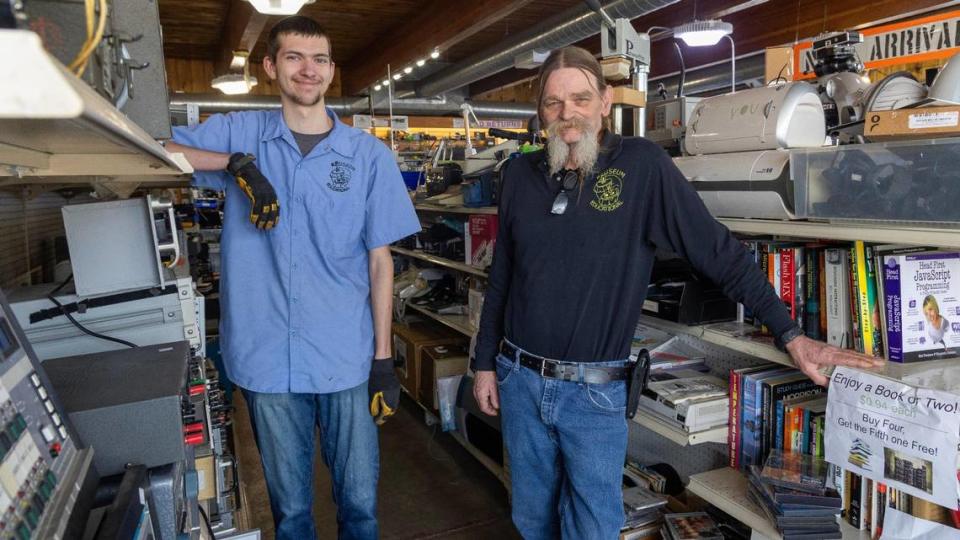
“The one rule I made a long time ago is, everybody builds,” said Martin, whose most basic workshop involves building “bristle bot” toys out of toothbrush bristles, old iPhone parts and small lithium-ion batteries. “If you bring your kid to class, you’d better plan on building.”
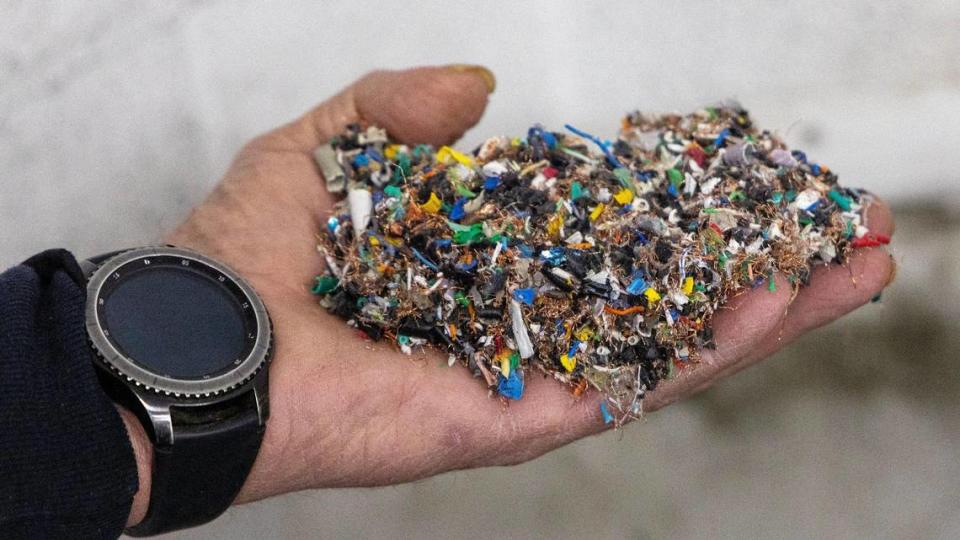
The creativity and outside-the-box thinking was a must for volunteers who didn’t know what they’d be faced with until each new item appeared in front of them.
“Our volunteers love the puzzle,” said Catherine Milner, one of the organizers and a materials management environmental analyst for the city of Boise.
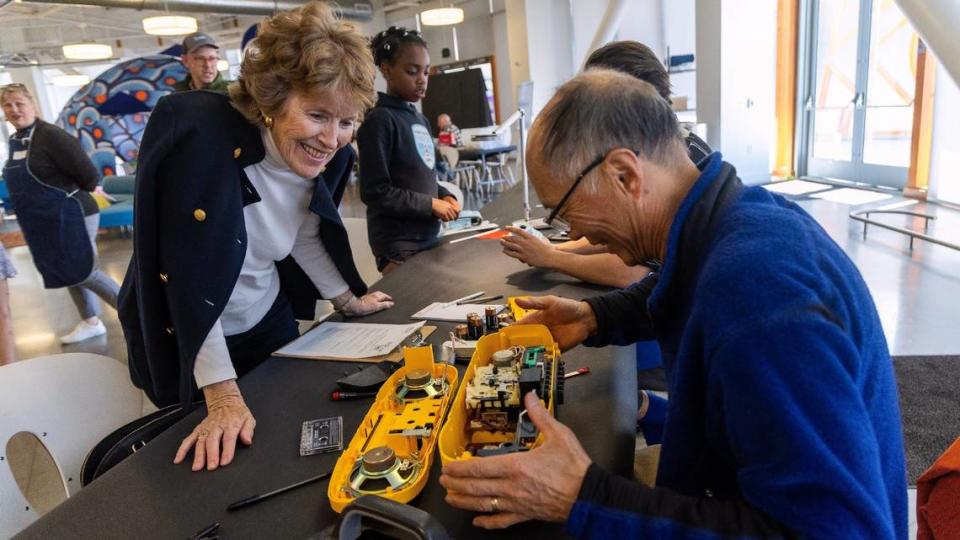
And indeed, the evening’s constant refrain seemed to be, “Hang on, I’ve got a tool for that.”
Whether it was a broken ice cream machine, a pair of shoes or an electric tea kettle, these repair mavens seemed to live by the credo on their nametags: “Toss it? No way.”
Ada County is growing fast, but its landfill is filling up faster. And that’s a problem
From weeding to fertilizing: What to know about Boise compost for spring gardening


